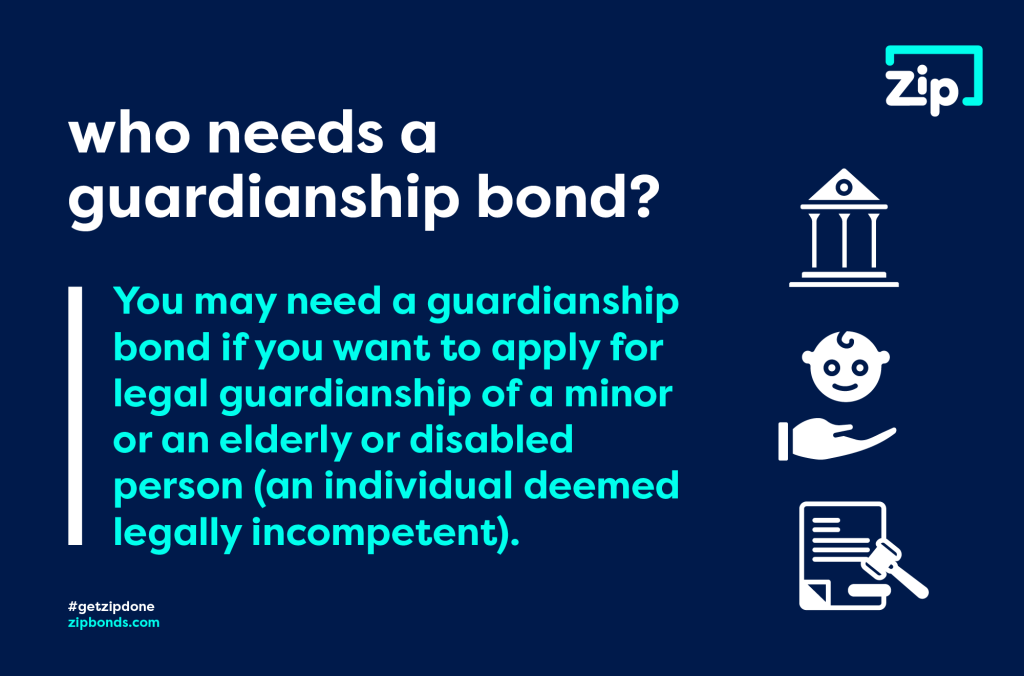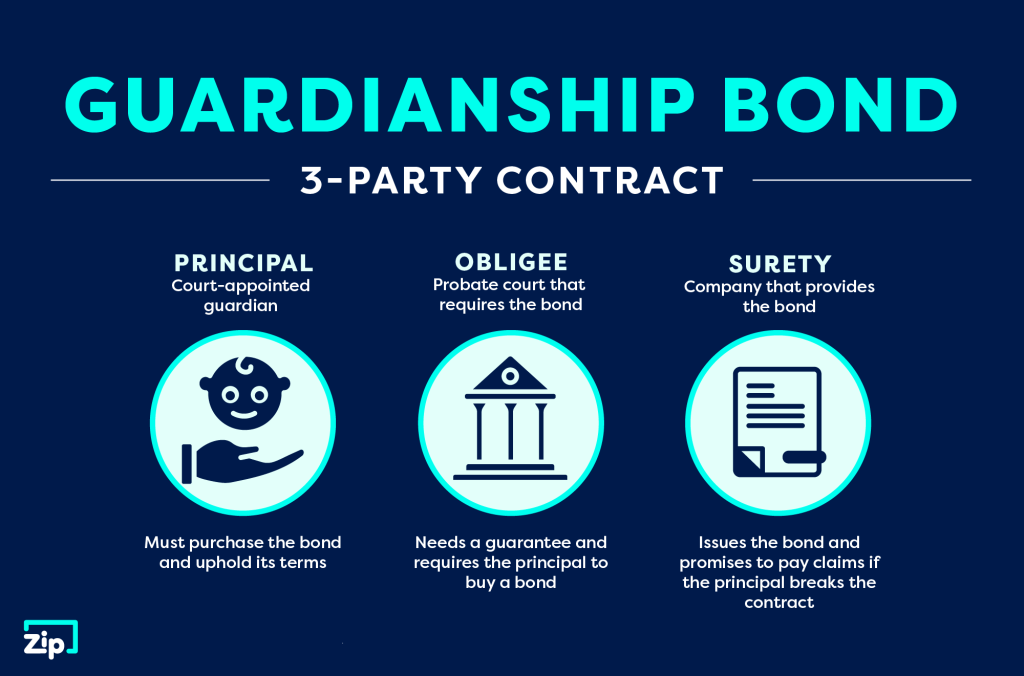Guardianship Bonds for Probate Court

What are guardianship bonds?
You may need a guardianship bond if you want to apply for legal guardianship of a minor or an elderly or disabled person (an individual deemed legally incompetent). Courts often require this bond due to the complexity, stress, and time commitment involved in establishing and maintaining guardianship. Other names for this bond include guardian bond and custodial bond.
A guardianship bond is a type of probate bond that guarantees the fiduciary – the person acting on behalf of another – puts the needs of their ward first. The fiduciary becomes legally and ethically obligated to manage their ward’s finances and other affairs properly. That means if a ward inherits an estate, cash, or life insurance, the fiduciary also becomes the guardian of those assets. Fiduciaries may also make health-related decisions for their wards.
In short, you must obtain a guardianship bond to become a court-appointed guardian of someone who cannot care for themselves properly.

Get Your Guardianship Bond:
Quick Takeaways
- You may need a guardianship bond to apply for legal guardianship of a minor or an elderly or disabled person.
- Guardianship is a legal process that allows a person or organization to make decisions for another person.
- By obtaining a guardianship bond, you’re showing the court that you take your new responsibility seriously and will be a reliable guardian.
- If guardians don’t follow all court orders or they take advantage of their position, they could face hefty bond claims.
- Guardianship bond rates typically range from 0.5% to 3% of the bond amount required.
What is guardianship?
Guardianship is a legal process that allows a person or organization to obtain the authority to make decisions for another person. This process is necessary when a child or an adult cannot care for themselves. Here are a couple of examples:
- A child’s parents can no longer care for their child.
- An adult has a mental deficiency, mental illness, or disease (e.g., dementia, stroke, coma, Alzheimer’s, or brain injury).
How do guardianship bonds work?
Guardianship bonds are three-party contracts involving a surety, an obligee, and a principal.
- Principal: The court-appointed guardian who must purchase the bond and uphold its terms
- Obligee: The probate court that requires the bond
- Surety: The company that issues the bond and backs it financially
If guardians don’t follow all court orders or take advantage of their position, they could face hefty bond claims. For example, if a guardian steals or mismanages their ward’s money, the court (or another party) may file a claim on the bond.
The bond protects the ward, who will receive compensation if there’s a valid claim. The surety will cover the costs to settle any claims upfront, but the guardian must ultimately repay the surety for all claim-related expenses.

Why do courts require guardianship bonds?
By obtaining a guardianship bond, you’re showing the court that you take your new responsibility seriously and will be a reliable guardian. The bond ensures that you faithfully fulfill all guardianship obligations. Guardianship bonds are essential in cases where a ward has a significant amount of assets.
The bond requirement also prevents individuals who are incapable of or unwilling to take care of the ward (the “incapacitated person”) from taking on the role. It protects the person who needs a guardian.
How much does a guardianship bond cost?
The court will decide the bond amount required. Premium rates often range from 0.5% to 3% of the bond amount (called the penal sum). Your specific rate will depend on whether an attorney is involved, the ward’s income and assets, your credit score, and your financial backing. You must renew your bond annually for it to remain active.
Guardianship lasts until adults regain the ability to care for themselves (or pass away) or children turn 18. If your judge requires it, you must maintain your bond until that time.

How to Get a Guardianship Bond in Your State
A judge may order you to obtain a guardianship bond before you can become a legal guardian and begin caring for your ward. You will likely need to file the bond with your county clerk. Contact us today to apply for your bond and get approved in a flash. You can apply online or call us at 888-435-4191.
About ZipBonds.com
Founders Ryan Swalve and Zach Mefferd formed the vision for ZipBonds.com when they realized how overly complicated it was to help clients place surety. The frustration of being unable to incorporate the technology they’d used in other insurance-focused projects left them thinking “there has to be a better way.”
Fast forward a couple of years, and that better way is the impetus of everything we do at ZipBonds. We constantly look for innovative ways to improve the bonding process for our clients and agents. Our team comprises individuals who understand all angles of surety – for companies, agencies, and individuals. Incorporating everyone’s point of view to improve the process while simultaneously integrating cutting-edge technology is what sets our business apart.

